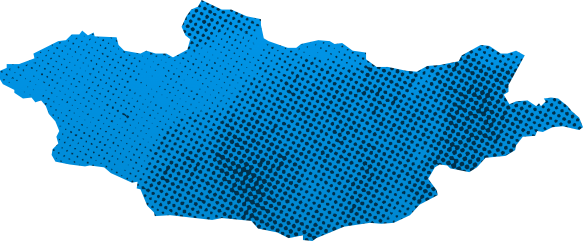
Volunteer statistics (ILO)*
Source: ILOSTATS. The data is collected by ILO from national statistical offices. As national statistics on volunteer work are produced using a variety of approaches and tools, direct and cross-country comparisons are not recommended. For more information, visit https://ilostat.ilo.org/topics/volunteer-work/
Total volunteering by gender
Direct volunteering by gender
Organization-based volunteering by gender
Measurement work
Data source
- 2007
- 2008
-
2009
- Labour Force Survey
-
2010
- Labour Force Survey
-
2011
- Labour Force Survey
-
2012
- Labour Force Survey
-
2013
- Labour Force Survey
-
2014
- Labour Force Survey
-
2015
- Time Use Survey
-
2016
- Labour Force Survey
-
2017
- Labour Force Survey
-
2018
- Labour Force Survey
- 2019
- 2020
- 2021
- 2022
- 2023
- 2024
- 2025
- 2026
Laws, Policies, Schemes on Volunteering
Does the country have a piece of legislation on volunteering?
No data
Does the country have a national policy, scheme, plan or strategy specific to volunteering?
No data
Does the country have a sectoral and cross-sectoral policy, scheme, plan or strategy that mentions volunteering?
No data
VNR Reporting
Mongolia Voluntary National Review Report
View sourceReporting positive contribution of volunteering to the SDGs
Paragraph 1, page 46
Volunteers play an important role in achieving the SDGs. In 2018, 27312 volunteers have contributed 3823117 hours, which can be valued as ₮ 5.5 billion of benefits to the economy. Cooperation with volunteers could be directed towards achieving the SDGs
No mentionMongolia Voluntary National Review 2023
View sourceReporting positive contribution of volunteering to the SDGs
Reporting on volunteering connected to matters of gender equality, women's empowerment or similar
Paragraph 1, page 18
Approximately 1,400 citizens participated in the conference and shared their views and initiatives, of which more than 1,000 participated as volunteers. Over 1,000 suggestions and initiatives were also received online. These views, suggestions and initiatives are ranked and reflected in the VNR.
Paragraph 2, page 28
Mongolia's network of volunteer organizations is actively engaged in achieving the SDGs. Volunteers carried out specific activities within the framework of SDGs 1, 3, 4, 5, 8, 10, 11, 13, 16, and 17, such as training; advocacy; providing support, information and consultation services; conducting research; personally participating in organized work to raise awareness of the importance of the SDGs; fundraising; and campaigning independently and with support.
No mentionUNSDCF Reporting
UNITED NATIONS SUSTAINABLE DEVELOPMENT COOPERATION FRAMEWORK MONGOLIA 2023-2027
View sourceVolunteering integrated into the narrative text of the UNSDCF
Volunteering integrated into the UNSDCF Results and Reporting Framework
Volunteering integrated in relation to gender equality and/or women’s empowerment
Paragraph 1, page 43
The partners would include, besides the Government at national and sub-national level, research, and scientific organizations, think tanks and academia, national and international NGOs including OPDs, youth organisations, local (affected) communities, volunteers, development partners including IFIs, private sector (international and domestic) including industry associations, and media, among others.
Paragraph 2, page 44
Theory of change: The underlying theory of change for this outcome is that to achieve people-centred governance with respect for rule of law and human rights, including gender equality, there is need for policy-planning, budgeting, financing, and results monitoring and reporting to become more coherent, evidence-based and SDG-aligned with the availability and use of disaggregated data; institutional settings are functionally aligned with each other and are capacitated and accountable; the judicial system and law enforcement agencies and national human rights mechanisms to improve to make it more independent, effective, gender- and child-sensitive, disability-inclusive and responsive to the justice needs of the marginalised groups; corruption and organised crime to be tackled through enforcement of laws and preventive action; civil service to be non-partisan, more professional, merit-based, and accountable; free and independent media that plays a strong watchdog function to keep the government accountable; potential of digital transformation to be tapped; meaningful participation of the civil society and public, especially the marginalised groups, through civic engagement and volunteering in the design and implementation of services and policies, and monitoring of human rights realisation encouraged; human trafficking especially of women and children tackled; discriminatory practices, harmful social and gender norms, hate speech, disinformation and fake news firmly countered; conducive environment created for women’s participation in social, economic and political life; and decentralization is strengthened for local development planning, budgeting and implementation of services in an integrated manner, especially benefiting the vulnerable groups.
Paragraph 3, page 45
While the civil society enjoys relative freedom and space in the country, UN will work to create supportive environment where civic space is available for people to meaningfully participate in decision-making particularly focusing on the participation of women and the youth, and persons with disabilities, including opportunities for civic engagement and volunteering.
Paragraph 1, page 71
Output 2.1 There are improved institutional capacities to deliver skilling and reskilling, volunteering opportunities, and entrepreneurship training to women and youth to enhance their productive capacity for decent employment and employability, improve women, youth and marginalized people
labour force participation including by better managing internal and international migration
[UN entities: FAO, IFAD, ILO, IOM, ITU, OHCHR, UNDP, UNESCO, UNICEF, UNFPA, UNIDO, UNV].
